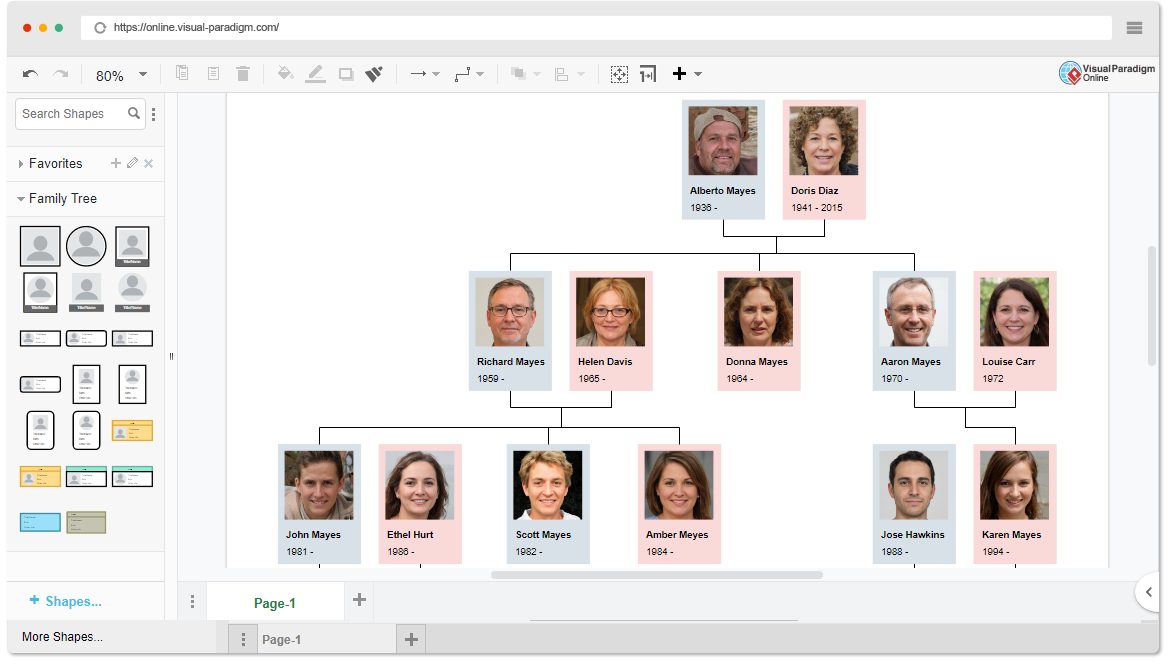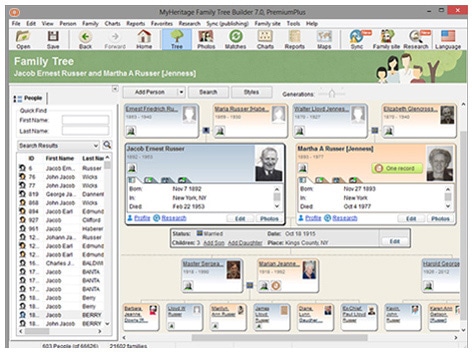

GEDmatch is a website allowing the comparison of autosomal DNA test results from any of the 3 major U.S. GEDCOM is an LDS-supported file format more than 30 years old, allowing the communication of genealogical data (ergo its name, GEnealogical Data COMmunication, or GEDCOM) between one genealogy database program or online family tree server and another. As more and more people have begun using GEDmatch, these two similar sounding terms have caused some confusion. MyHeritage is one word, with the "H" capitalized. Findmypast, which is one word, is a bit tricky, since it "styles" its logo as "findmypast", but unless you're using its actual logo, capitalize it (and no other letter in its name). FamilySearch is one word, with the S capitalized. FamilySearch,, Findmypast, and MyHeritage.

(If it helps, think of your own devices as "down" and all those Web-based services, increasingly referred to as "cloud-based", as "up".) You might download a census image from a records-hosting service to your smartphone, or download a set of DNA test results from a DNA testing company to your laptop. The opposite, then, is that you download *from* a cloud-based server, and download *to* your own device. For example, you might upload a photo from your tablet to a photo-sharing website, or a GEDCOM-format file from your desktop computer to a website that lets you share family trees with others. In a general sense, you upload *from* your own device (usually a desktop or laptop computer, but increasingly a tablet or smartphone) and upload *to* an online server, usually using a website. So let me lay out a few terms that could be more carefully written (the company and product names below are typically trademarked): Unfortunately, our hobby and profession that requires very close attention to detail nonetheless often suffers from sloppy language usage. Genealogical research is one of those activities that requires crystal-clear communication between researchers, in order to prevent misunderstandings and to facilitate searching for needed information. I just discovered the following article, which expresses the same idea: "Why It's Time the World Embraced Wikipedia". We imagine that there are armies of editors fact-checking anything that ends up in print, but the reality is, errors are printed and they *may* be caught and corrected in future printings or future editions. And the same can be said for non-genealogical print works. Maybe genealogists have forgotten that printed family histories can be just as prone to error as anything one might find online.

The problem with the nay-saying on Wikipedia is that it seems to deify information found in print, as if one could leave critical thinking at the door and embrace whatever one finds in black-and-white on paper. And yes, even there, there are errors too. I suppose one could more reasonably compare Wikipedia to the unified family trees found on such sites as FamilySearch (to name the best-known example). Of course, one major difference between Wikipedia and public family trees is that each tree is normally the work of an individual, while a Wikipedia article can be the work of dozens if not hundreds of individuals. When speaking to others about Wikipedia, I often get reactions not unlike the attitudes toward the public family trees found all over the Web (but predominantly on ), namely, that you should never trust it, because it is nothing but errors.


 0 kommentar(er)
0 kommentar(er)
